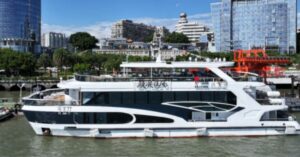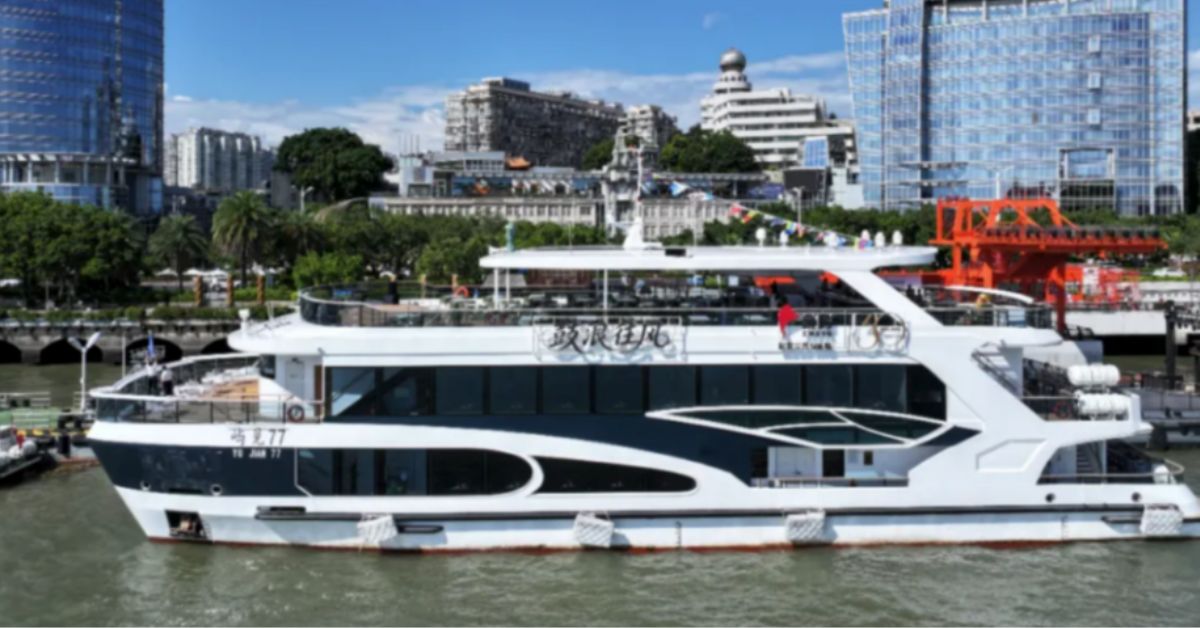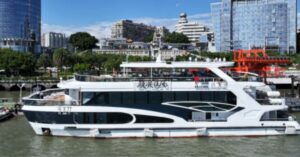
Riot Police & Protestors Clash After Israeli Cruise Ship Docks At Greek Island
July 30, 2025
Shipping’s First Centrifugal Onboard Carbon Capture System Fitted On Scorpio Tanker
July 30, 2025

World’s Biggest Battery Manufacturer, CATL (Contemporary Amperex Technology Co.), has powered China’s first fully electric offshore tourist ship, the Yujian 77. It has marine-grade batteries with a capacity of 3918 kWh.
The ship can accommodate 358 passengers, is 49 m long, 14.5 m broad and 4.15 m high with a 2.5 m draft. It was constructed by Fujian Funing Shipbuilding Heavy Industry, which creates a wide range of electric passenger ships and also offshore support and research vessels.
The battery packs, based on lithium-iron-phosphate chemistry, offer a range of 45 nm or 100 km. It also has two 450 kW electric motors, enabling a maximum speed of 11 knots or 20 km per hour.
The batteries are designed for safety, longevity and enhanced performance. They are IP68 rated, which means they are dust and water resistant and are protected against immersion in water from one to three metres.
They also feature No Propagation technology, which prevents thermal runaway from spreading among battery cells.
The ship was made to provide both day and night cruises with a comfortable experience along the Fujian province, China, especially around Xiamen and Fuzhou.
The ship has zero emission technologies, which decrease its fuel consumption by 250 tonnes every year, leading to 400 tonnes less carbon dioxide emissions, equivalent to planting more than 20,000 trees, per CATL.
It is not the first nor the biggest ship CATL has fitted with batteries, though it is one of the first to have these versions of marine-grade batteries, which were introduced in December 2023, at Marintec China, one of the most famous maritime exhibitions organised in Shanghai.
CATL also delivered batteries for Yangtze River Three Gorges 1, presently the biggest fully electric cruise ship, built for cruising on the Yangtze River.
That vessel has a 7500 kWh marine battery pack, equivalent to the energy capacity of more than 100 electric cars.
The world’s biggest fully electric ship as of mid-2025 is Incat Hull 096, now named the China Zorilla. It is a 130 m long car passenger ferry constructed in Tasmania by Incat for Buquebus.
Source: Maritime Shipping News


